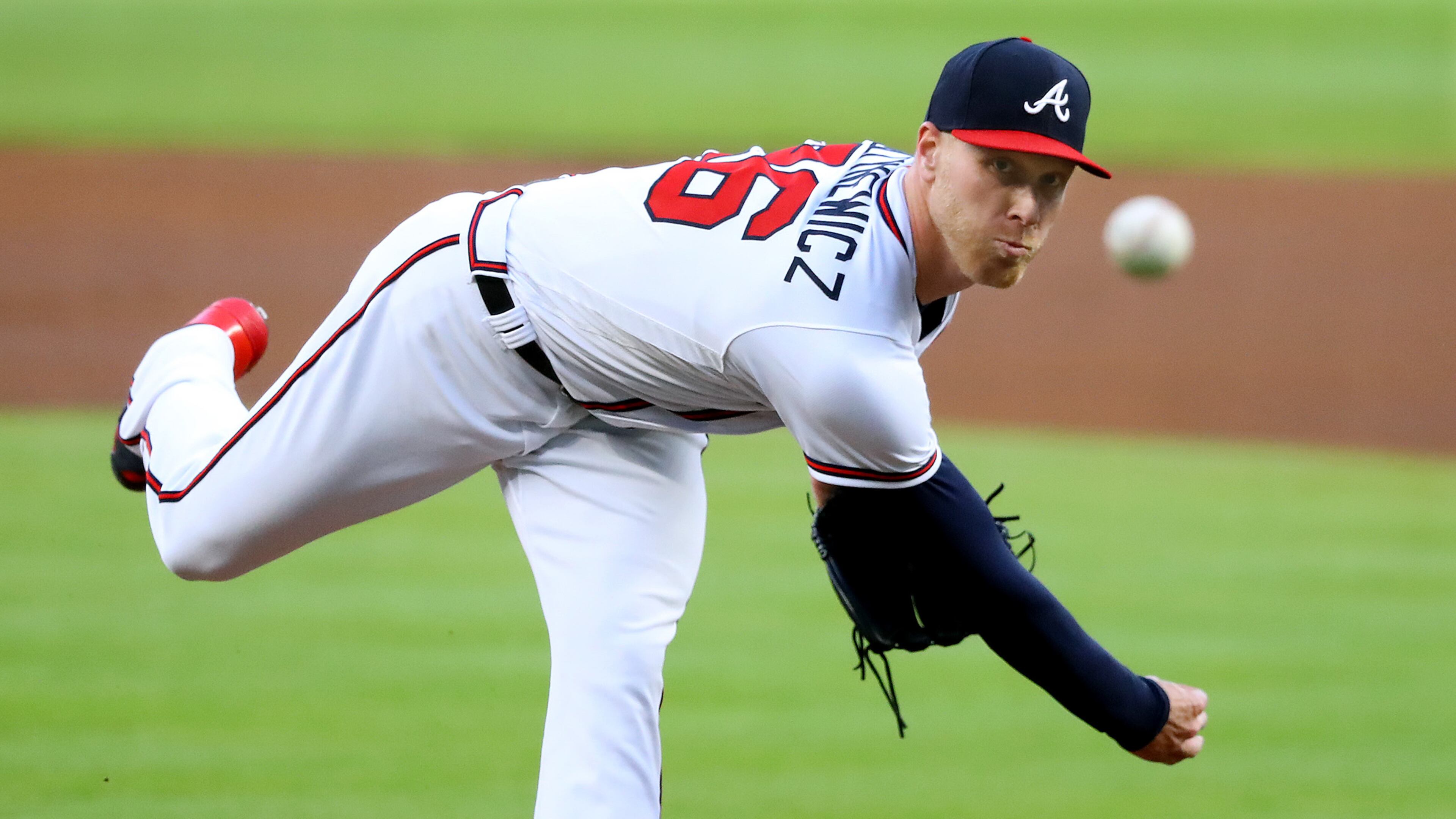Oh, what an unflappable Foltynewicz could mean to Braves

It wasn’t Folty’s fault.
He started Tuesday night’s extra-inning loss to Philadelphia, could have gone deeper into the game but threw too many pitches in vain and was long gone by the time Jose Ramirez was the drum major to a parade of Phillies runs in the 10th.
If you have closely watched Mike Foltynewicz pitch for the Braves for much of these past three seasons, you know this was, all in all, the good Folty.
And, if you have closely watch this particular Braves starter for that long – and maybe taken a few notes along the way – then congratulations. You are but a few credit hours short of a degree in psychology.
Granted, when a person wants to enjoy a nice spectrum of neuroses, it’s more common to fire up an old Woody Allen movie than go the ballpark. What’s entertainment in one venue can get downright uncomfortable in another.
On the raised mound, all alone on the highest spot on the field, Foltynewicz had nowhere to hide when a game started going haywire and the shrill calliope music began playing in his head. He showed every frustration. He began speeding up a pace that already bordered manic. He began so obviously fighting himself, when the real opponent was actually 60 feet and change away.
The result: Too many high-pitch, high-stress innings. Too few of the kind of I’m-in-charge-here kind of outings that should naturally spring from his considerable stuff.
If a corner has been turned, if the squirrels have been well and truly chased from his attic, then we might expect an appearance like Tuesday’s to be emblematic. (Editor’s note: That’s something the Braves really need).
No, not exactly a masterpiece of domination – his four walks could have been far costlier had the Braves not perfected the art of the inning-ending double play (four for the game, three in his six innings). The squandered pitches and the outings that often seem too brief are the most consistently maddening aspects to Foltynewicz watching. And, yes, this particular pitcher can be a carrier of a highly contagious strain of frustration, because you just know in places that don’t answer to baseball’s river of numbers that he could be really, really good.
“Again, the walks elevated the pitch count, cost him maybe another inning,” Braves manager Brian Snitker said.
“Walks, and giving up hit to the pitcher – he gave me a good battle. Could have been out there maybe another two innings, you never know how things could have gone,” Foltynewicz said.
Could be/should be better. That’s a common take-away from his starts. But you know the Braves will take Tuesday’s line just about any time: Six innings pitched, four hits, one run, eight strikeouts.
And Foltynewicz’s last inning was his best, when he struck out the Phillies’ Nos. 3-4-5 hitters. A fine drop-the-mike moment, even if you were hoping the performance would last a little longer.
“His last two games have been real encouraging with what we’ve seen,” Snitker said. “To his credit he kept (Tuesday’s) game in check, never gave in and made pitches when he had to.”
This young season, Foltynewicz already has out-pitched Washington’s Max Scherzer, and in the process broke a personal eight-game winless streak. His embryonic ERA this season is just 2.53, a run-and-a-quarter lower than his career number (4.75).
The fast worker actually seemed to slow and gather himself as Tuesday night progressed. Unlike his younger self, he didn’t visibly melt down, turning a setback into a pitching crisis.
This is progress. This is something worth watching.
The Foltynewicz start often is a symptom of what’s wrong with modern starting pitching – too inconsistent, too quick to yield the mound to the bullpen, a waste of what should be a team’s best arm.
But he is just 26, a new father, committed to getting both his pitches and emotions under control.
At this stage, we’ll consider it great progress if he is just not a walking Rorschach Test every fifth day.

